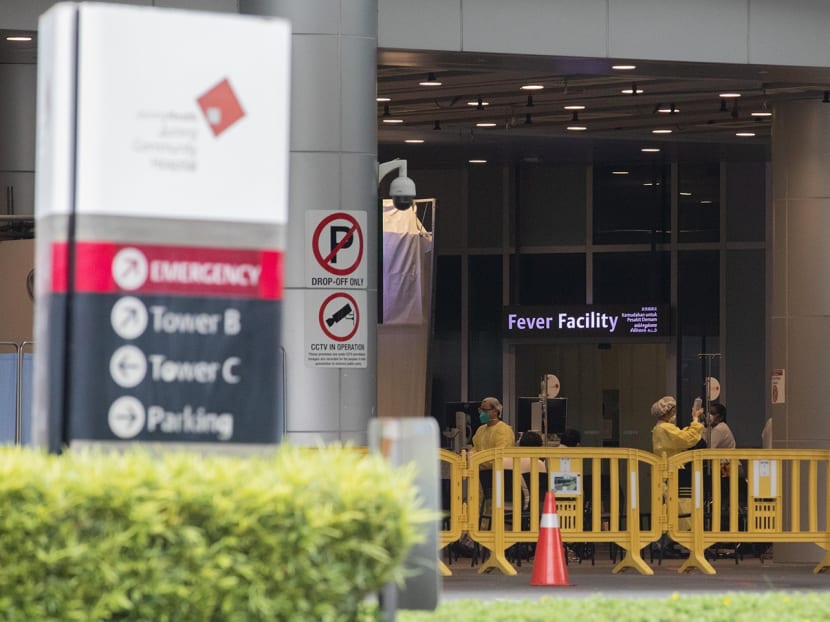Eight-fold increase in respiratory cases at public hospitals’ A&E departments in last 3 months
SINGAPORE — Accident and emergency departments across public hospitals here have seen an eight-fold increase in the number of patients with respiratory ailments in the last three months, said Senior Minister of State for Health Janil Puthucheary on Monday (Oct 4).

About 15 per cent of hospital beds in public hospitals are being used for around a tenth of all Covid-19 cases now.
- Parliament heard that 86 per cent of isolation beds in hospitals have been taken up
- In intensive care units, 53 per cent of beds have been taken up
- Manpower has been affected as 400 healthcare workers have tested positive for Covid-19 in the recent surge so far
SINGAPORE — Accident and emergency departments across public hospitals here have seen an eight-fold increase in the number of patients with respiratory ailments in the last three months, said Senior Minister of State for Health Janil Puthucheary on Monday (Oct 4).
Due to the recent surge in Covid-19 cases, 86 per cent of non-intensive care isolation beds in hospitals are now taken up.
He gave these numbers in response to questions from Members of Parliament (MP) on the capacity of the healthcare system.
Right now, about 15 per cent of hospital beds in public hospitals are being used for around a tenth of all Covid-19 cases, he said, and those requiring oxygen support or intensive care account for 2 per cent of total cases.
Most of these patients are either seniors or unvaccinated individuals.
In the past three months, bed occupancy in intensive care units has increased from 26 per cent to 53 per cent, while occupancy for isolation beds has gone up from 58 per cent to 86 per cent.
As for beds in the community care facilities, which take in patients who are generally well but have underlying health conditions, occupancy has gone up from 10 per cent to 35 per cent.
Before the last 14 days, people above the age of 70 were taken to hospitals within 12 hours from the time they receive a positive polymerase chain reaction test.
However, with the current surge in cases, the average time taken to take senior patients to the hospital has gone up to between 48 and 72 hours, Dr Puthucheary said.
Ambulances from the Singapore Civil Defence Force are reserved for patients with emergency conditions, he added, that is why the Ministry of Health has set up a dedicated fleet of 95 extra ambulances to take coronavirus patients to healthcare facilities.
On the manpower front, Dr Puthucheary said that 400 healthcare workers have tested positive for Covid-19 so far.
Therefore, the authorities are working with private healthcare providers to step in and help with the manpower shortage.
The home recovery programme was introduced to relieve the strain on the healthcare system, since most of those infected with Covid-19 have no or mild symptoms, Dr Puthucheary added.
Right now, fully vaccinated patients between the ages of 12 and 69 will be placed on the home recovery programme by default.
Only those with severe symptoms, elders, or those with other underlying health issues will be admitted into hospitals or other treatment facilities for closer monitoring because they are more susceptible to severe illness, he said.
Also speaking in Parliament on Monday, Health Minister Ong Ye Kung noted that it has been a challenging 20 months for healthcare workers, and they should be recognised for their efforts.
“We have enhanced their salaries, but I think recognition needs to go beyond that,” he said.
“In good time, when the pandemic has settled down or is over, we must properly express our gratitude to them and make sure that generations of Singaporeans will be inspired by their bravery and dedication during the Covid-19 pandemic.”











